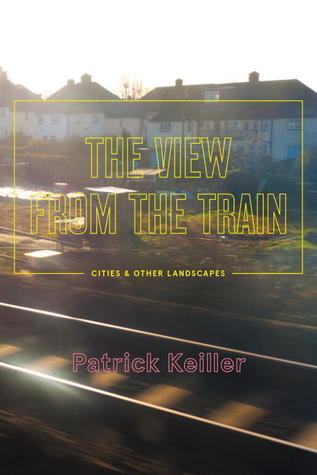What do you think?
Rate this book


228 pages, Hardcover
First published November 1, 2013
Both London and Robinson in Space had set out with a perception of economic failure, the result of a backward, specifically English capitalism; but in the second film, this gave way to an understanding that the UK's social and physical impoverishment was not a consequence of some inevitable 'decline', but of the successful operation of a particular economic system in the interests of those who own it. The 'problem' that the film had set out to examine was revealed as the result of political decisions that could be challenged' (6).
The desire to transform the world is not uncommon, and there are a number of ways of fulfilling it. On of these is by adopting a certain subjectivity, aggressive or passive, deliberately sought or simply the result of mood, which alters experience of the world, and so transforms it (9).
This visual material deliberately depicts places that are nearly or altogether devoid of human presence and activity, but which because of this absence are suggestive of what could happen, or what might have happened.... The aim is to depict the place as some sort of historical palimpsest, and/or the corollary of this, an exposition of a state of mind (11).
In the UK, wealth is not confined to a conservative nomenklatura, but the condition of, say, public transport or state-sector secondary schools indicates that the governing class does not have a great deal of use for them. People whose everyday experience is of decayed surroundings, pollution, cash-starved public services, job insecurity, part-time employment or freelancing tend to forget about the UK's wealth. We have been inclined to think that we are living at a time of economic decline, to regret the los of the visible manufacturing economy, and to lower our expectations. We dismiss the government's claims that the UK is 'the most successful enterprise economy in Europe', but are more inclined to accept that there might b less money for schools and hospitals, if only because of the cost of financing mass unemployment (46)
...under advanced capitalism it is increasingly difficult to produce and maintain the dwelling. This is especially odd given that dwelings constitute the greater part of the built environment, that they are the spaces where most people spend most of their time, and where arguably the real 'work' of society is done. Modernity, it seems, I exemplified not so much by the business park or the airport, but by the dilapidated dwelling (54)
The volume of new construction is now less than it used to be, and western cities have not change anything like as much as was expected in, say, the early 1960s (70).
in London now, psychogeography leads not so much to avant-garde architecture as to gentrification
.... The great irony of the UK's psychogeography phenomenon is that its invocation of the flaneur only narrowly preceded and almost immediate commodification of café culture (71).
At the time [1990s], I suggested that their purpose had been overlooked: the derive and psychogeography were conceived, in a more politically ambitious period, as preliminaries to the production of new, revolutionary spaces; in the 1990s they seemed more likely to be preliminary to the production of literature and other works, and to gentrification, the discovery of previously overlooked value in dilapidated spaces and neighbourhoods (186).
Capitalism both destroys and creates places, but the places it creates seem always, at least to begin with, less substantial, less rich, than the places it destroys...On the other hand, modern capitalism also gives place high value--partly by making its sought-after qualities scarce, partly by concentrating power in the global system in particular places: New York, Tokyo, Frankfurt, Paris, London, and so on. In the interstices of all this--in more or less dilapidated domestic spaces, as 'consumers' (neither passive nor docile)--we live our lives (73)